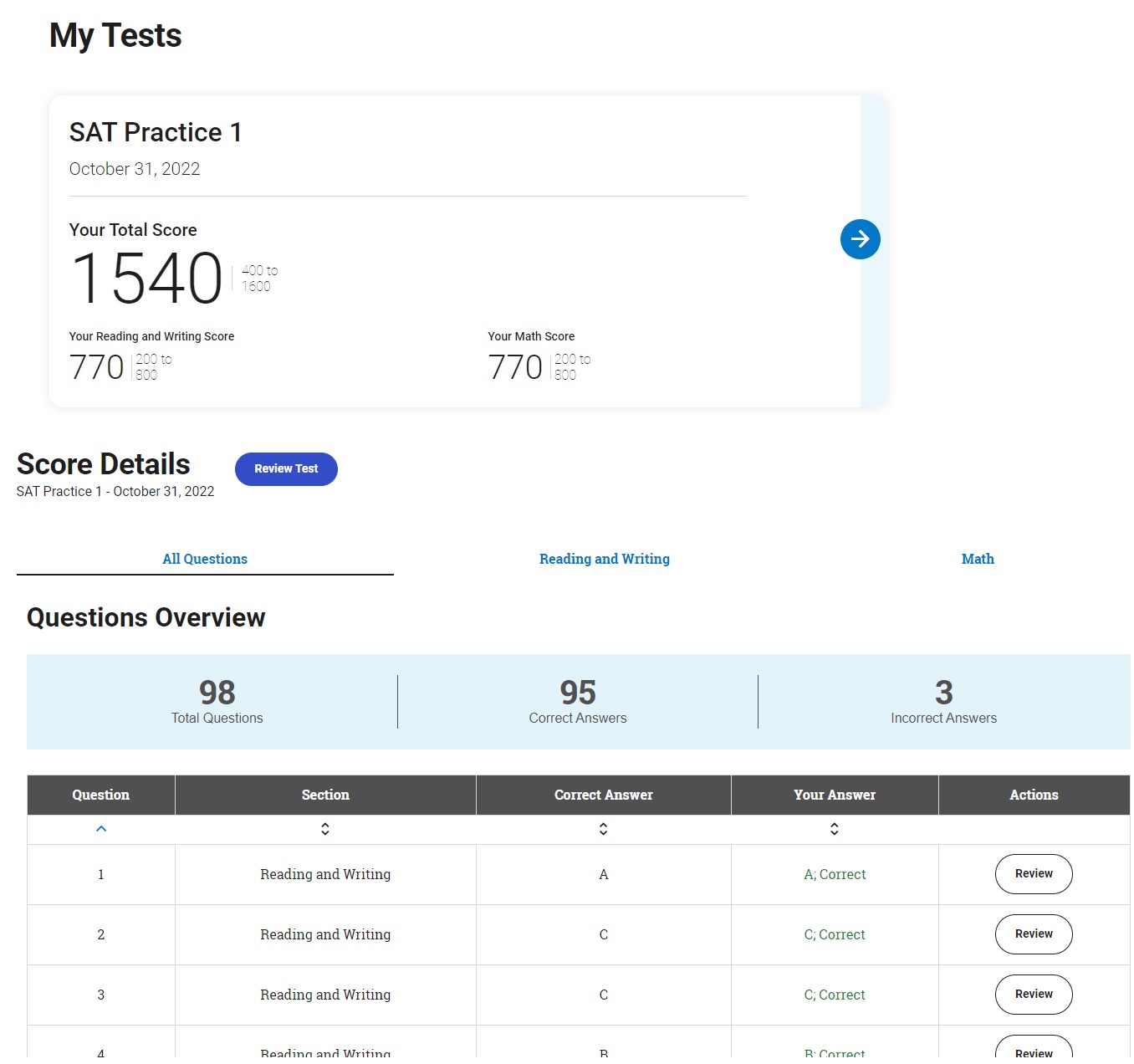“The SAT will be administered digitally from 2023 onward. How has the test changed and what does it mean for the test taker?”. – Amit Bhandari
The SAT will be going digital from 2023 onward. What should students expect from the new format? To find out, I appeared for a Digital SAT mock test earlier this week, in which I scored 1,540. This is lower than what I would have scored on the paper test for the same number of mistakes.
What has changed?
I first needed to register on the College Board website, and had to download the Blue Book app on my device. Compared to the paper SAT, this was a shorter test – 2 hours for the digital test instead of 3 hours for the paper test. Since the test is done digitally, it is easier to time yourself. Students occasionally make mistakes in filling up the correct response in a paper answer sheet – that possibility is eliminated. If you are unable to solve a question, you can mark it for review and revisit it later on.
The test had fewer questions – 98 in all instead of 154 questions in the paper SAT. The test was divided into two parts – 54 questions for English and 44 for Math. The paper test has 52 (Reading) + 44 (Writing & Language) and 58 (Math).
There were some changes in the questions as well. In the language section, the passages were short – a paragraph at most. Each passage had a single question linked to it. As a result, I found this section easier compared to the paper test. Out of the 54 questions, I got one wrong – and scored 770 in this section.
The questions for this test were adaptive, meaning that the difficulty changes based on how you perform – questions get more difficult if you are doing well, allowing for finer testing. For instance, in the Math section, I got two questions on parabolas – this is one of the tougher subjects in SAT Math, and I have not encountered more than one such question in the paper mocks. Out of the 44 questions in this section, I got two wrong – and scored 770 here as well.

What has not changed?
The test is still scored on a scale of 1,600. You are still tested on your language and math skills – just that the tools have altered slightly. In case of the math section, it is still useful to be familiar with all the formulae (such as the trigonometrical ratios, area, volume of figures) – rather than look them up. Likewise, it is better if you can perform most of your calculations mentally – I had to use the calculator only on a few occasions – this reduces the number of steps and the chances of making a mistake. Time management is easier compared to the past, but you still need to do it. Finally, as in the past, practice is always helpful.